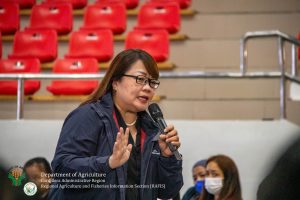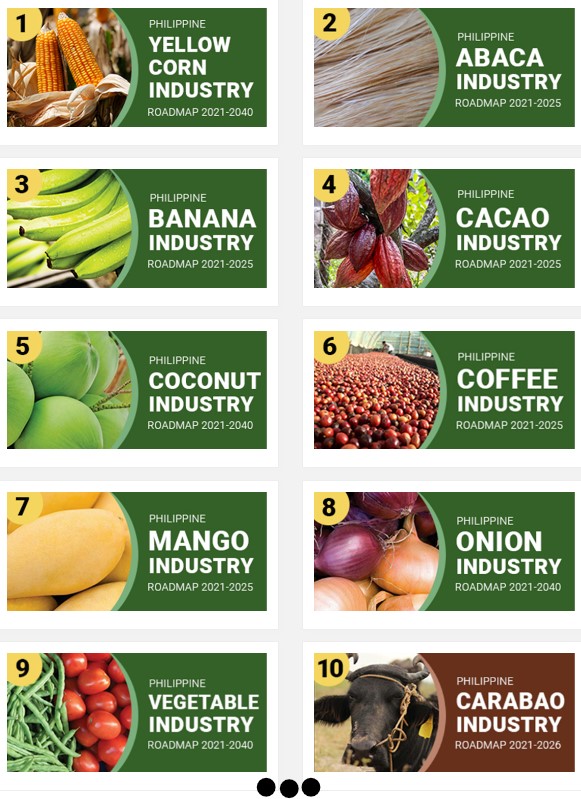
To further address several concerns and doubts surrounding the Regional Comprehensive Economic Partnership (RCEP), the Department of Agriculture (DA) extensively presented the scope of the agreement and debunked some misinformation regarding the agreement during the highland vegetable industry stakeholder’s dialogue conducted on January 17, 2024 in Wangal, La Trinidad, Benguet.
According to DA’s Macro-Economic Policy Division Chief Tisha Pia Dela Rosa, the RCEP agreement is not the reason why there is an influx of vegetables in the country particularly in the Cordillera region, and why its price is being challenged. Accordingly, fluctuating prices of vegetables are already happening even before the ratification of RCEP, which took effect on June 2, 2023.
“Hindi RCEP ang reason kung meron mang nadi-displace na highland vegetables sa merkado ngayon. Highland vegetables, along with rice, sugar and other highly sensitive agricultural commodities, were excluded from the RCEP negotiations,” she stated.
Dela Rosa also clarified that the tariff being imposed to the local vegetables pre-RCEP will be the same during the RCEP implementation since they are included in the list of exclusion from tariff commitments. Under the agreement, most products that are being imported to the country are processed goods and other commodities that are seldomly being produced in the country.
In CAR, particularly the highland vegetables industry stakeholders, worry that the consumers will prefer the imported vegetables more that the locally produced one. Further, the RCEP will be illegally used or abused by importers to smuggle their way in, as smuggling agricultural products has been rampant for the past few years.
Illegally imported carrots, for example, is currently being sold in key markets. As such, buyers opt to buy them as they are cheaper and more visually appealing than the locally produced ones. Just last year, smuggled boxes of carrots from China labeled ‘ABC Baguio’ were being distributed among markets in the country. Some of the boxes were seized in November at Zambales by the Bureau of Customs. The League of Association at the La Trinidad Vegetable Trading Areas released a statement after, clarifying that the commodities are not from Benguet and Baguio, as Baguio does not produce carrots.
With this, Cordilleran vegetable farmers worry that importers will take advantage of the RCEP agreement to smuggle agricultural products to the country. Furthermore, they conveyed their concerns regarding food safety of these products as these are obviously unsafe to consume since it did not pass the Bureau of Plant Industry’s plant quarantine rules and regulations, which includes monitoring and inspection of incoming shipments for agricultural products to safeguard the sector to possible sanitary and phytosanitary (SPS) threats associated with unauthorized imports. But Dela Rosa assured that the agriculture sector will not be affected during the implementation of the trade agreement since the tariff of agricultural commodities are protected by retaining the World Trade Organization’s (WTO) remedies such as general, special and transitional safeguards that addresses increased imports that cause injury or threat thereof to a domestic industry due to the reduction or elimination of tarif
fs under RCEP. She also encouraged the stakeholders to explore more opportunities to finally export their products.
The RCEP is the largest free trade agreement in the world, with 10 nations in the Southeast Asia including the Philippines and five (5) of ASEAN’s external partners including Japan, South Korea, China, New Zealand and Australia.
RCEP, which was 8 years in negotiation, aims to unify trading rules between ASEAN countries. It also aims to improve market access, widen area of cumulation of raw materials, retains rights and obligations under the WTO, with elaborations on increase on transparency and responsiveness to requests relevant to market access applications, provides time bound technical consultation mechanism for Parties (180 days), and strengthens technical cooperation, which will help enhance capacity and methodology in undertaking risk assessment, management and communication.// Cy-j E. Waytan






